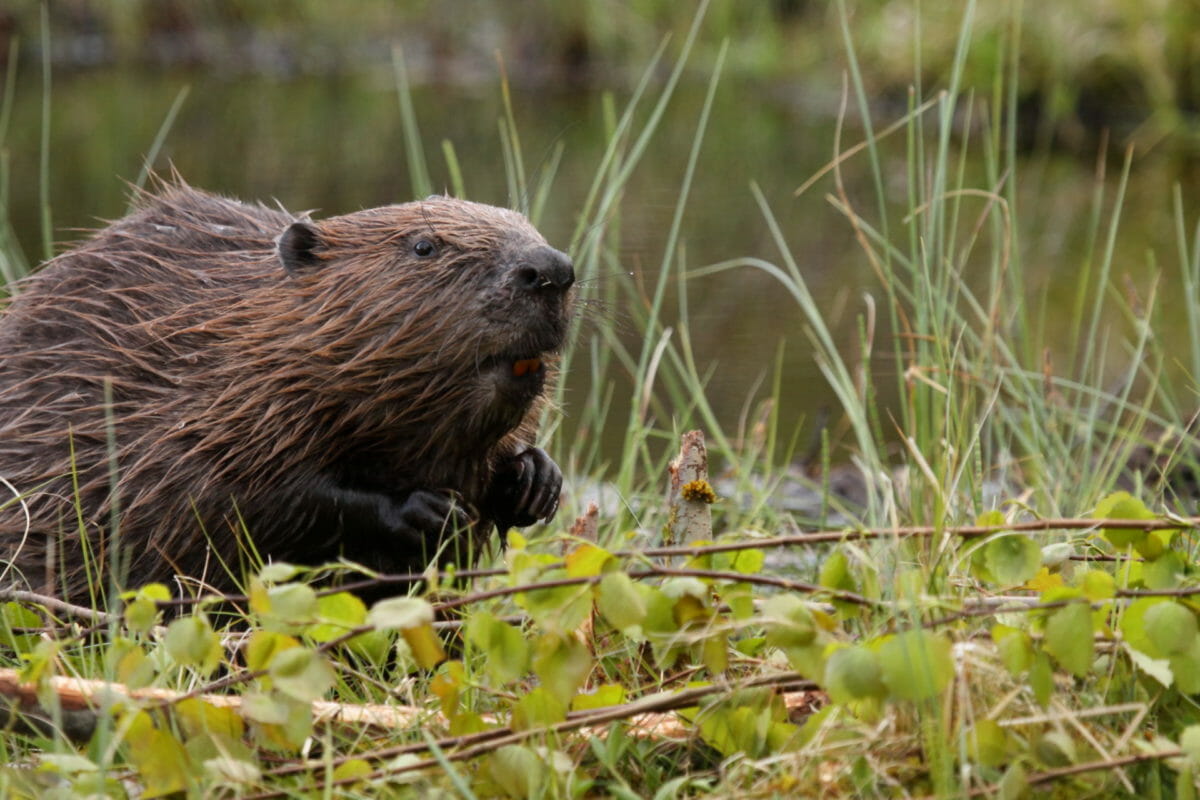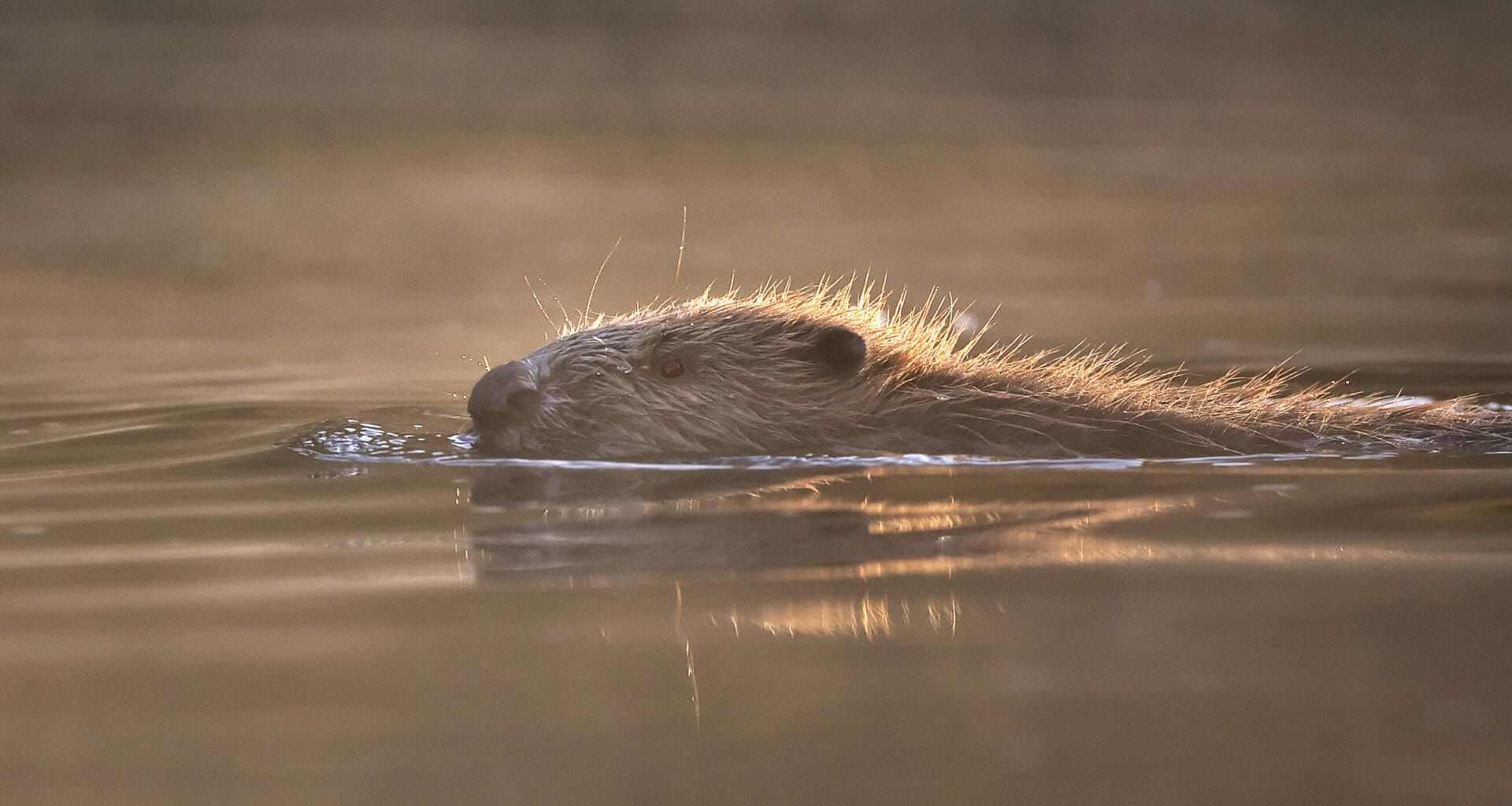The Scottish Government’s wildlife agency told farmers that beavers were “good to eat and could be used for taxidermy”, according to an animal welfare charity.
NatureScot has been accused by the Scottish Society for the Prevention of Cruelty to Animals (SSPCA) of encouraging a “culture of breach of regulation” which could promote the illegal killing of beavers in Tayside.
The accusation was denied by NatureScot, which used to be called Scottish Natural Heritage. It insisted that the licensed shooting of beavers was “safe, humane and not in breach of regulations.”
Campaigners, however, lambasted NatureScot’s remarks on eating and stuffing beavers as “completely unacceptable”. The agency’s job was “to defend protected species, not advertise them for dinner”, said one.
On 8 December the Highland wildlife charity, Trees for Life, launched a £40,000 crowdfunding appeal to take NatureScot to court for allowing too many beavers to be killed. The charity alleged the government agency was breaking the law by failing to ensure that shooting was “a genuine last resort”.
Beavers were hunted to extinction in Scotland in the 16th century. They were illegally or accidentally released in Tayside before 2006, and have spread widely along waterways.
In 2018 there were an estimated 430 beavers in 100 locations in the Tay and Forth river catchments. Though the animals were welcomed by many, they were blamed for flooding and crop damage by some farmers and landowners.
After prolonged arguments reported by The Ferret, the Scottish Government gave beavers legal protection on 1 May 2019. Since then in order to kill them, land managers have had to obtain a licence from NatureScot.
In 2019 licences were issued permitting the killing of 87 beavers in Tayside, a fifth of the known population. NatureScot has declined to say how many have so far been killed in 2020.
To help farmers learn how to shoot beavers, NatureScot held a series of training workshops around Tayside in May 2019. In September 2020 The Ferret reported that a leaked copy of the agency’s presentation included a photograph of two young girls holding a dead beaver and smiling.
Now NatureScot has released a complaint it received from SSPCA about one of the workshops. It was supplied to The Ferret after we requested an internal review under freedom of information law.
An unnamed SSPCA chief inspector attended a NatureScot beaver workshop for farmers at Murthly Village hall in Perthshire on 2 May 2019. The charity subsequently wrote a four-page letter to NatureScot, expressing concerns about its attitude and language.
“It is accepted that in part attempts were being made to build rapport and cultivate trust, however some comments suggested a culture of breach of regulation and it appeared this was known and acceptable,” SSPCA said.
“Stating that beavers were good to eat and could be used for taxidermy could promote killing for reasons other than serious damage.”
SSPCA also complained about NatureScot’s advice that beavers could be shot while they were in water. “There is an increased risk of injury due to the shot or bullet being redirected by water or by movement of the beaver itself,” the charity wrote.
“There is also an increase in the risk of a shot being attempted when the beaver is partially or wholly submerged or indeed another animal such as an otter being targeted.”
SSPCA warned that advice on killing whole family groups of beavers presented “serious welfare concerns” which could leave young beavers, known as kits “becoming abandoned and suffering due to removal of parents and natal lodge.”
SSPCA concluded: “Given the complexity and very short time beavers have been present in Scotland, allowing people to conduct lethal control and destroy burrows and lodges without expert advice could result in compromised welfare of the beavers.”

The Scottish Wild Beaver Group, which campaigns to protect the Tayside beavers, described lethal control as a “misjudged and possible illegal” policy. “It’s a truly sad day when animal welfare organisations like the SSPCA have to call-out government policy over animal welfare concerns,” said the group’s trustee, Andrew Thompson.
“We are particularly dismayed that the accreditation training of lethal control contractors by NatureScot was delivered in a such a chummy tone. These training events clearly lacked the gravitas appropriate to a government regulator, with a responsibility to set and uphold standards.”
Beavers should be moved rather than killed, Thompson argued. Not allowing beavers to be relocated from farms to other parts of Scotland was “causing an existential threat to our fragile beaver population”, he warned.
NatureScot’s job is to defend protected species, not advertise them for dinner.
Mark Ruskell, Green MSP
The Scottish Greens thanked SSPCA for highlighting “appalling failings” and urged ministers to defend beavers. “NatureScot’s job is to defend protected species, not advertise them for dinner,” said the party’s environment spokesperson, Mark Ruskell MSP.
“This once again demonstrates a disturbing lack of professionalism from NatureScot in discharging it statutory role.”
The Scottish animal campaigns charity, OneKind, agreed with the concerns raised by SSPCA. “We oppose the killing of wild animals, but if it must occur it should be only in exceptional circumstances and with welfare prioritised,” said the group’s policy officer, Kirsty Jenkins.
“It is completely unacceptable for a governmental agency to mention at a training session, even in a casual way, the possibility that beavers could be eaten or their bodies used for taxidermy purposes.”
NatureScot stressed that lethal control was a last resort when there was no other satisfactory solution. Training helped ensure that lethal control was done “humanely” and with “the highest standards of wildlife welfare”, it said.
“NatureScot has never encouraged regulation breaches,” a spokesperson told The Ferret.
“Everyone taking part in beaver control needs to have been trained by NatureScot, hold a species control licence and, and where lethal control is being used, they must also have proper and responsible disposal arrangements.”
The spokesperson added: “We spoke at length to the SSPCA after they attended a training event about these concerns and they are satisfied that the practices are safe, humane and not in breach of regulations.”
The practices are safe, humane and not in breach of regulations.
Spokesperson, NatureScot
NatureScot also argued that its licensing system was not illegal. “We are confident that our approach to managing these impacts is robust and lawful and licences are only used if we are satisfied that there is no other solution,” said sustainable growth director, Robbie Kernahan.
The Scottish Society for the Prevention of Cruelty to Animals argued that all relocation options should be “explored and exhausted before lethal control is considered”. Many more licences were granted for lethal control than for relocation, it pointed out.
“Currently, licences are not granted to relocate beavers in Scotland and we believe this should be looked at urgently,” said SSPCA chief superintendent, Mike Flynn.
“The ability to move beavers to areas of suitable habitat in Scotland where there is no conflict with humans or other beavers would make a massive difference. We are committed to enhancing our understanding of how we can allow the beaver population to grow whilst minimising the requirement for any form of control.”
He added: “We work closely with NatureScot to ensure the welfare and wellbeing of beavers in the wild.”
Letter about beavers from the Scottish Society for the Prevent of Cruelty to Animals to NatureScot
Cover image thanks to Scotland: The Big Picture.














